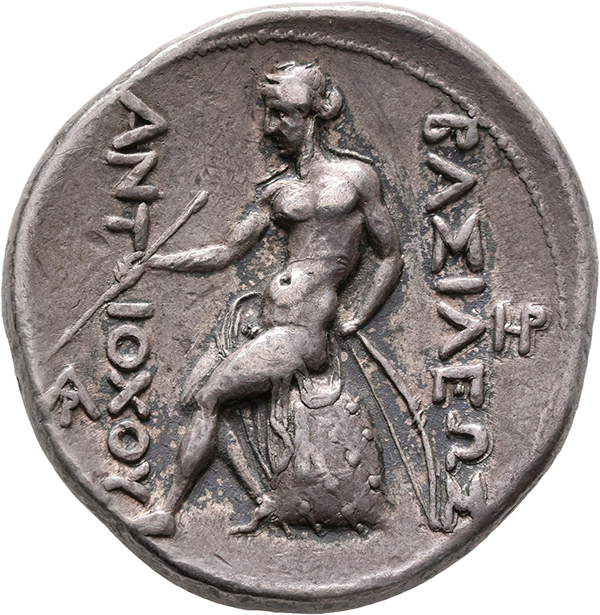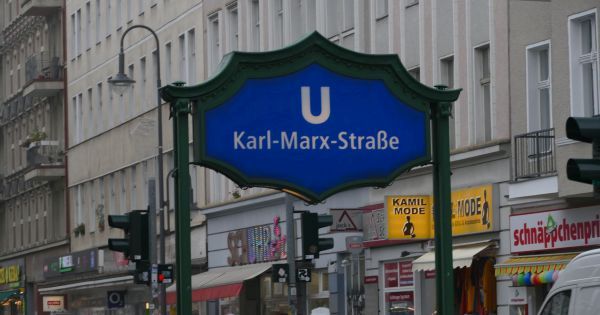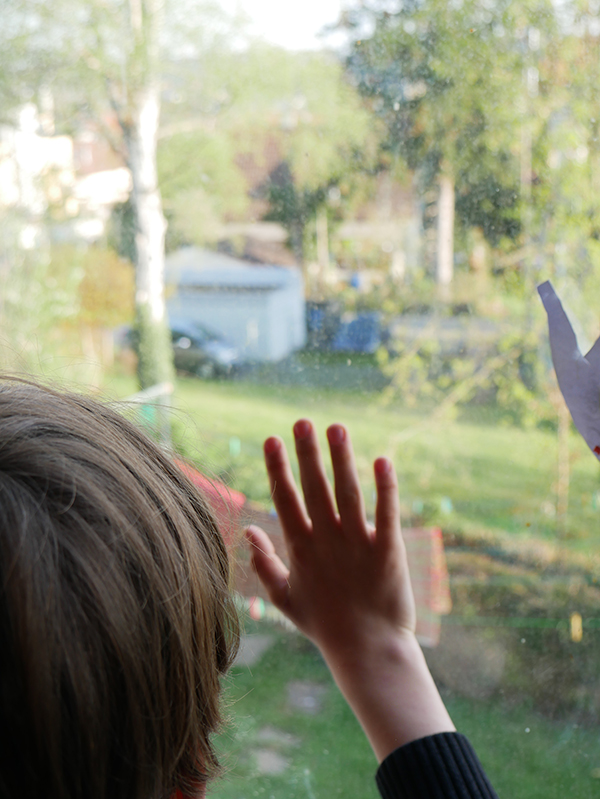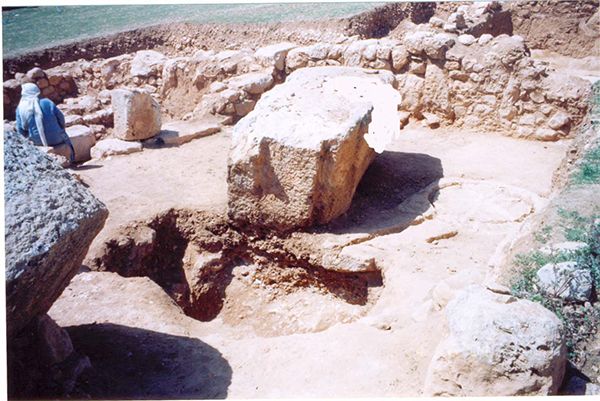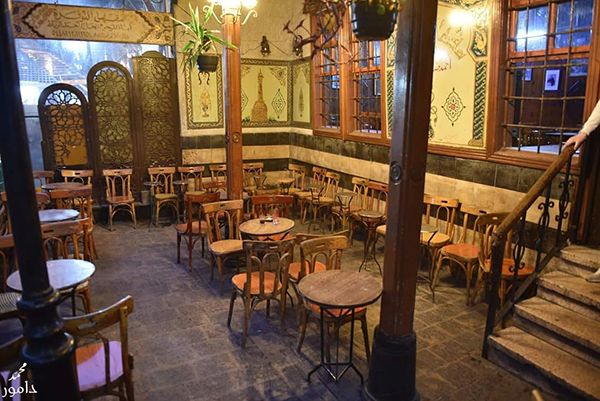By Stefan Krmnicek In our series on ancient coins, this article is about an ancient silver coin from Iraq in the coin collection of the Institute of Classical Archaeology at the University of Tübingen. On the obverse we see the bust of a man to the right. His face looks pathetically realistic. The eyes are deep set, the nose is quite prominently shaped. His curly hair falls neatly combed from the crown. A wide bandage is wound around the head. Readers of our previous posts already know that a bandage, also called a diadem, was the symbol of royalty for… Read More
Category: News In English
Covid reveals justice gap
By Michael Seifert There are almost daily reports in the media about how corona incidence levels vary between neighbourhoods in large cities. The values, and thus also the risk of infection, are significantly higher in so-called social hotspots with high-rise housing estates, where the proportion of migrants is particularly high, than in villa neighbourhoods. Surveys in hospitals in Baden-Württemberg also indicate that the proportion of patients with a migration background is very high in intensive care units. tünews INTERNATIONAL spoke about this with Boris Nieswand, Professor of Sociology at the University of Tübingen. He explains these trends with the social… Read More
Quarantine: a challenge for the whole family
By Ute Kaiser 14 days of vacation feels short for children. 14 days of quarantine, on the other hand, drags on like chewing gum. A family from Tübingen experienced this around Easter. The ten-year-old son tested positive for the corona virus in elementary school. The PCR test was also positive. After that, the usual life changed fundamentally for him, his three- and twelve-year-old brothers and his parents. tünews INTERNATIONAL talked to the 53-year-old father about this time. A few hours after the PCR test result passed with phone calls: with the health department, with parents of classmates and friends also… Read More
2700-year-old wine press discovered in Lebanon
The wine industry has its origin in the Middle East Youssef Kanjou It is unknown exactly when the people knew the wine industry, but it is clear that is very ancient, as well as all the archaeological evidence that it started in the Middle East. At the same time, until now there are a few ancient evidence has been discovered about this the industry, such as facilities and ponds. The oldest traces in the Levant were found on the wine industry dating back to the sixth millennium BC. The win press in that period consisting of rock or stone floors… Read More
A coin from Damascus shows a Syrian, who became a Roman emperor
By Stefan Krmnicek At the beginning of the year, tünews INTERNATIONAL introduced a coin of King Antiochos VIII and his mother Cleopatra Thea from Syria: A 2000-year-old coin from Damascus tells a story. Today, an interesting coin from Damascus during the Roman imperial period is to be presented. Both are from the Institute of Classical Archeology’s coin collection at the University of Tübingen. This piece is a 9.05 grams heavy bronze coin, with a diameter of 24 millimeters. Its surface has been badly damaged by corrosion. Because of this, not all details are clearly visible. However, with our knowledge of… Read More
Coffee: millions love it, but how did it spread?
Youssef Kanjou und Oula Mahfouz Do you miss sitting in the café now in Corona time? Have you ever thought about how coffee houses and cafes came into being and who spread around the world? The use of coffee developed differently according to the customs and traditions of each country. But how and when did coffee, drinking habits originate and when did coffee houses spread all over the world? There are many myths about it. Probably Ethiopia is the original home of coffee beans, but Yemen is the country from which coffee as a drink was spread. And it was… Read More
Women can also be extremists
By Natalie Hekmat When we imagine extremists, we often think of aggressive and violent men. This was the consensus of the speakers at the symposium “Extrem.ist.in. Women in Salafist and right-wing extremist milieus” in Stuttgart-Hohenheim. However, women are also frequently found in such groups and take on essential tasks there. For example, they transmit extremist ideologies or become violent toward people who correspond to their image of the enemy. However, they are often not taken seriously as perpetrators and are seen as victims of or just “the wives of” male perpetrators. According to the speakers Derya Şahan and Judith Raner,… Read More
Museums in the corona crisis
By Youssef Kanjou Most people frequently visit museums as places for education, culture and leisure. Usually, a large number of visitors come at the same time. But because of the corona pandemic, museums cannot receive visitors at the moment. How are museums coping with this pandemic? And how do they reach their audience? Museums around the world have increased their online activities. These offerings have increased through the use of modern technologies. There are a number of wonderful opportunities that museums offer as an alternative to a live visit. For example, Berlin museums have a number of virtual tours and… Read More
A 2000-year-old coin from Damascus tells a story
By Stefan Krmnicek From ancient coins and their diverse coin designs and inscriptions, one can learn many new things about the rich history of Syria. This coin was minted in silver in Damascus at some point between the years 121 to 120 BC. It is 16.29 g in weight. The “heads” side shows in profile the heads of Queen Cleopatra Thea and her son Antiochos VIII, who ruled Syria together at that time. The queen is adorned with magnificent earrings, a veil, tiara and hair ribbon. Her son wears a bandage, the symbol of royalty, in his hair. Through the… Read More
People in Afghanistan – caught between war, terror and corona
By Mohammad Nazir Momand (research) and Michael Seifert (text) On November 16th, 2020, a small demonstration against a deportation flight to Afghanistan, planned for that day, took place in Tübingen. Young, single men were supposed to get deported, some of them had already been put into detention pending deportation. Mohammad Nazir Momand, an editor with tünews INTERNATIONAL, was at the demonstration. “Around 40 people were there, both Afghan refugees and German volunteers,” he reports. He sees the planned deportations in correlation with the contracts between the EU and the Federal Government with Afghanistan in 2016. According to it, a condition… Read More

